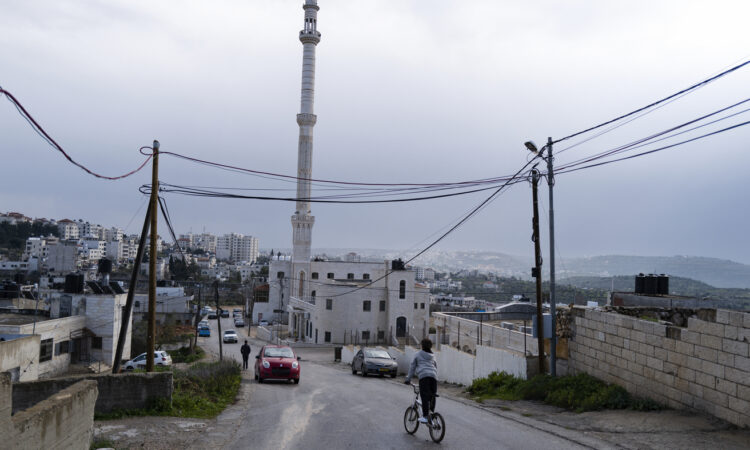
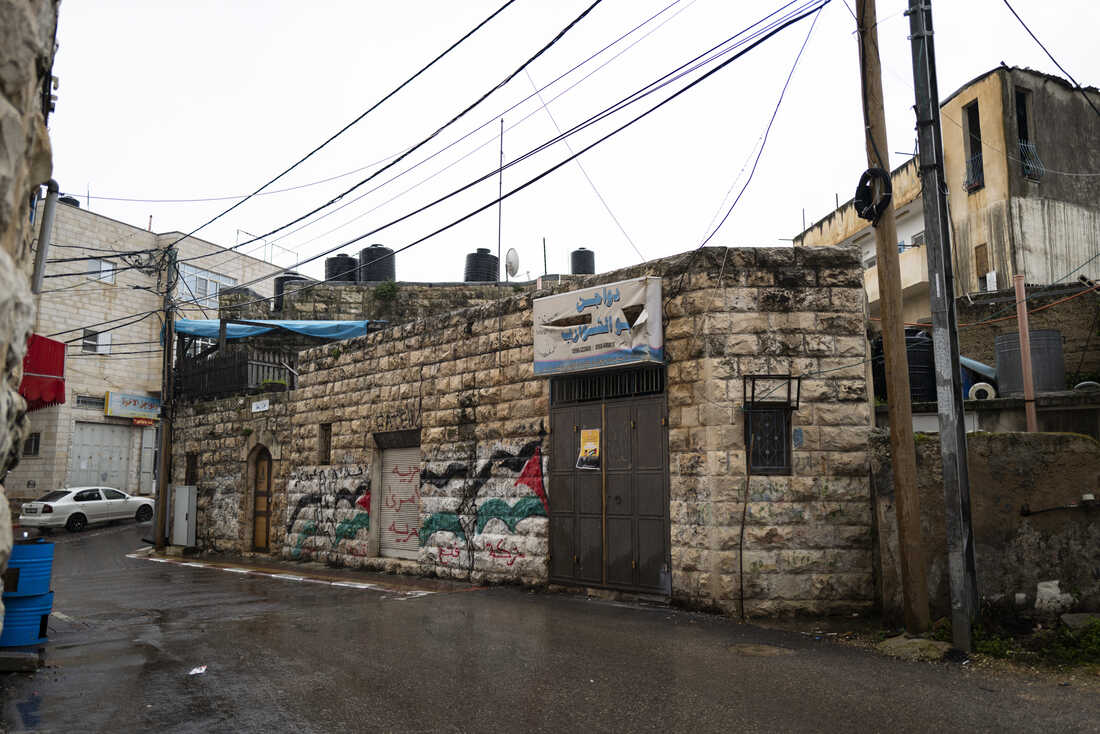
Silwad, home to a community of Palestinian-Americans, is a town where crumbling infrastructure blends with new construction projects developed by expats.
Ayman Oghanna for NPR
hide caption
toggle caption
Ayman Oghanna for NPR
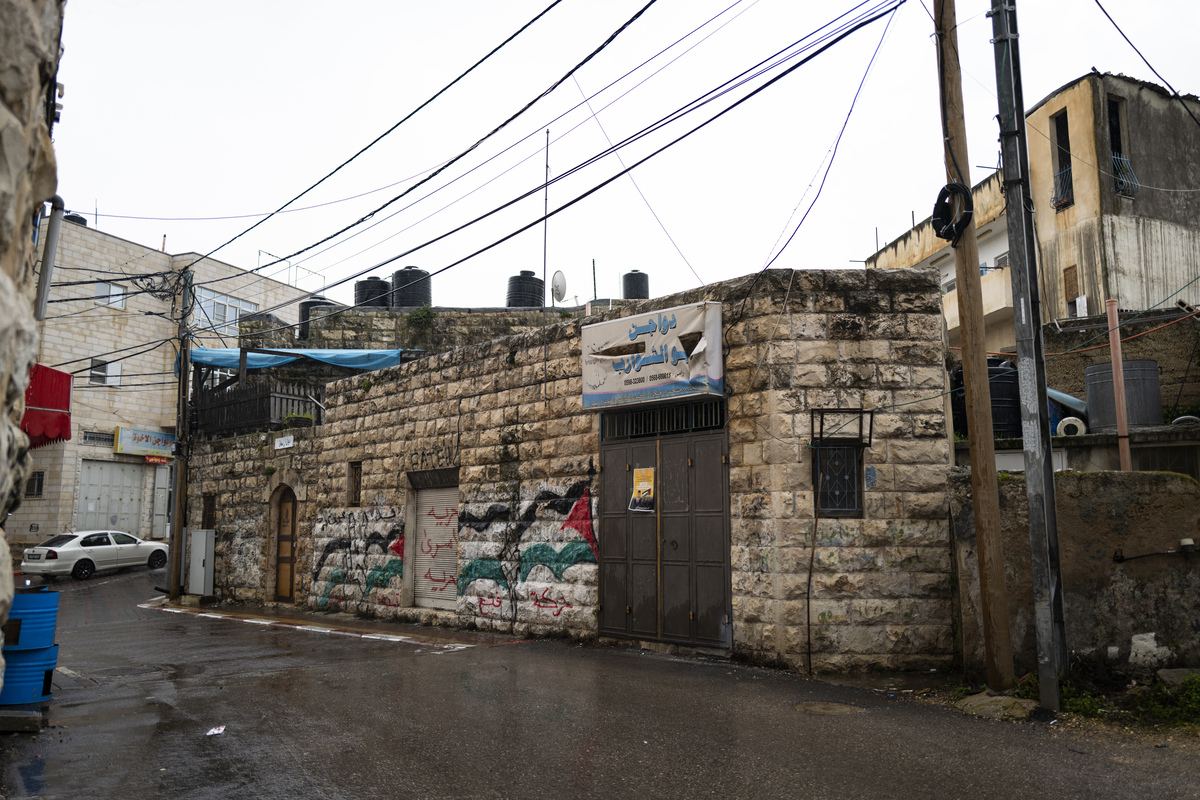
Silwad, home to a community of Palestinian-Americans, is a town where crumbling infrastructure blends with new construction projects developed by expats.
Ayman Oghanna for NPR
SILWAD, West Bank — The hilltop village of Silwad, roughly nine miles east of Ramallah, is over 300 years old, with winding narrow streets and crumbling, abandoned old storefronts overlooking lush valleys.
It’s hemmed in by an Israeli settlement, Ofra, to the south, and an Israeli military facility to the east. To the west of the village, Route 60 further prevents any growth for Silwad.
At the top of the road leading into the heart of the village is Silwad Mall & Tower — the first reminder of expat Palestinian dollars flowing into this community in the Israeli-occupied West Bank. A shiny, block-long development capped with a stout cylindrical mall, featuring a large pizzeria, boutiques and a two-story travel agency that specializes in U.S. visas and travel.
Ahmad Ajaj, 24, works at Flyers Pizza on the ground floor and says the owner, a Palestinian-American, isn’t in town right now. He says American dollars help keep Silwad afloat.
“In every village where American Palestinians are, we all work very well,” says Ajaj.
“In the summer, when the Americans come, they bring money with them, they see their family and they spend! Business is really good then,” he says.
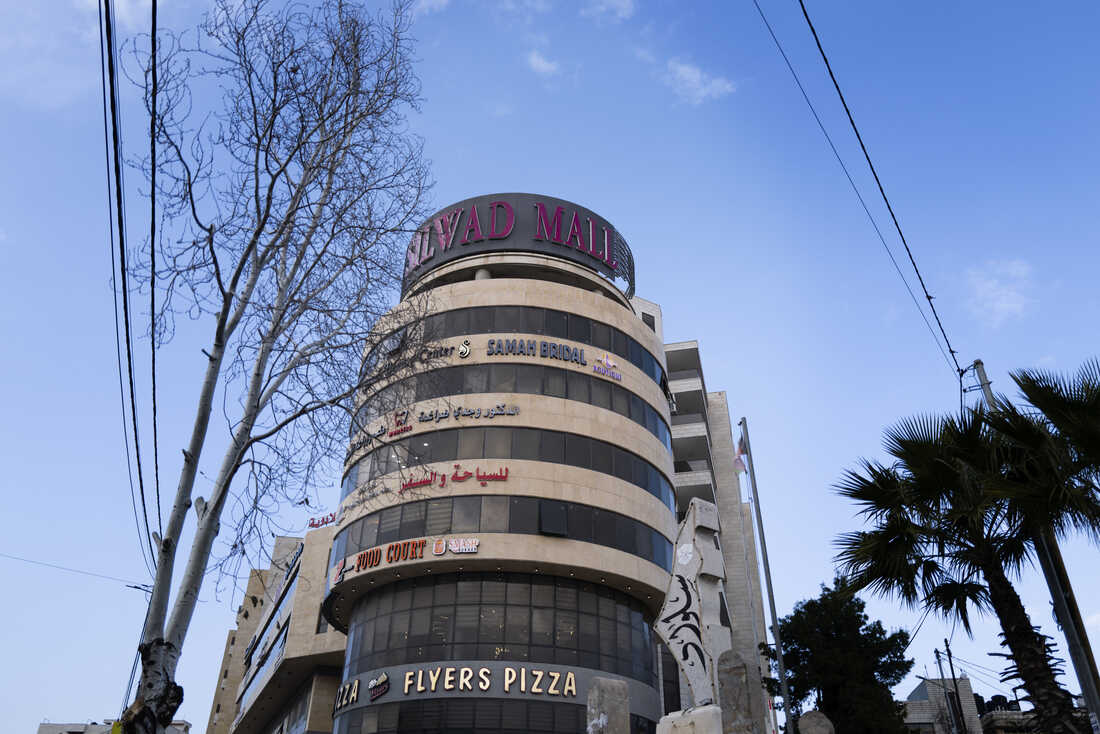
Silwad Mall is a shiny, block-long development capped with a stout cylindrical tower featuring a pizzeria, boutiques and a two-story travel agency that specializes in U.S. visas and travel.
Ayman Oghanna for NPR
hide caption
toggle caption
Ayman Oghanna for NPR
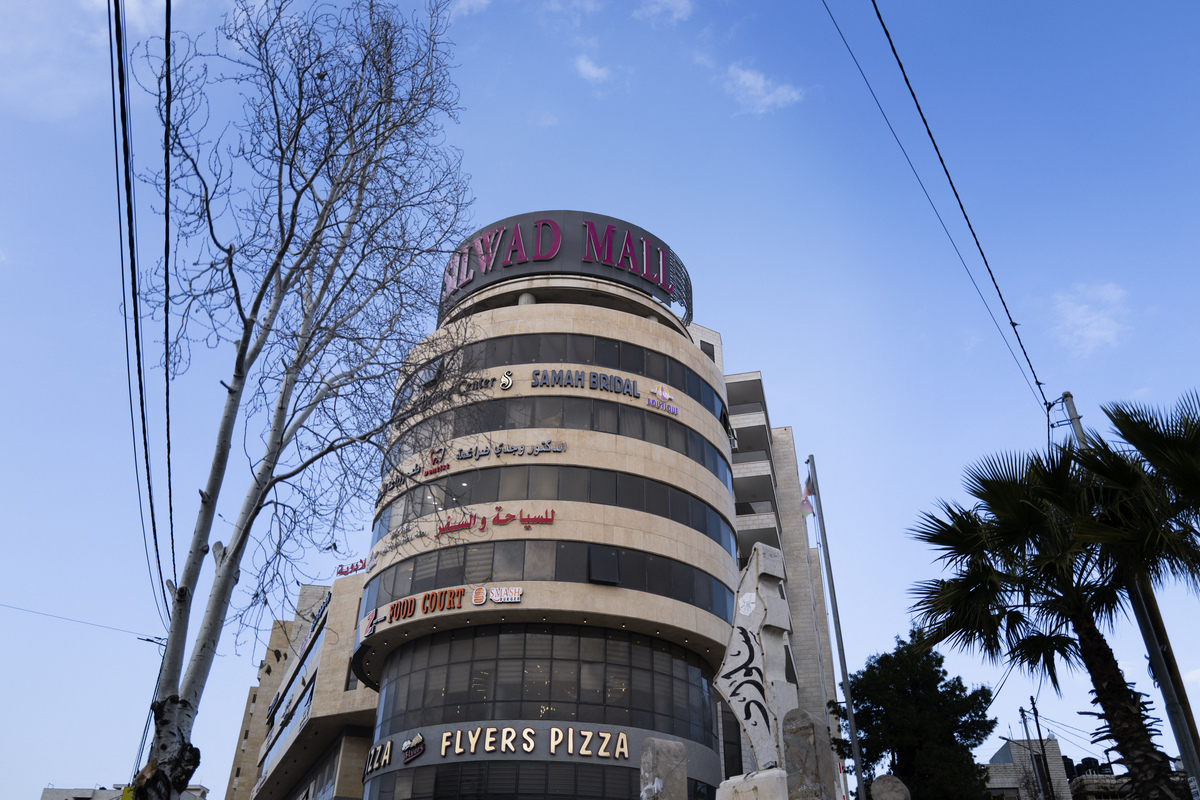
Silwad Mall is a shiny, block-long development capped with a stout cylindrical tower featuring a pizzeria, boutiques and a two-story travel agency that specializes in U.S. visas and travel.
Ayman Oghanna for NPR
Down the road is a poultry plant, owned and operated by a Palestinian-American family that calls Philadelphia home. Up the street sits a new mini-mart, also owned and operated by a Palestinian family from Philadelphia.
At Abu Shukri’s American Coffee, an uncluttered, wood-paneled cafe that could easily be in Seattle, Mohammad Abdurahman, 27, and Nurdin Mustapha, 19, sell sandwiches and make coffee drinks.
Abdurahman says the shop is part of small franchise owned by a Palestinian-American from a nearby village, Ain Yabrud.
“These are the best people, they are the ones that move the country, economically,” says Abdurahman of the expats who invest in Silwad.
Among those Palestinian-Americans is Musa Hamed, 64, an industrial engineer based in Atlanta.
Hamed’s father was from Silwad, and while he has lived much of his life overseas, he’s not only held on to his roots here, he’s also invested heavily.
Hamed has lovingly renovated his father’s home, preserving his grandparent’s quarters, updated a larger family home and has built two apartment buildings — modern and in stark contrast to the cobblestone remnants of village life.
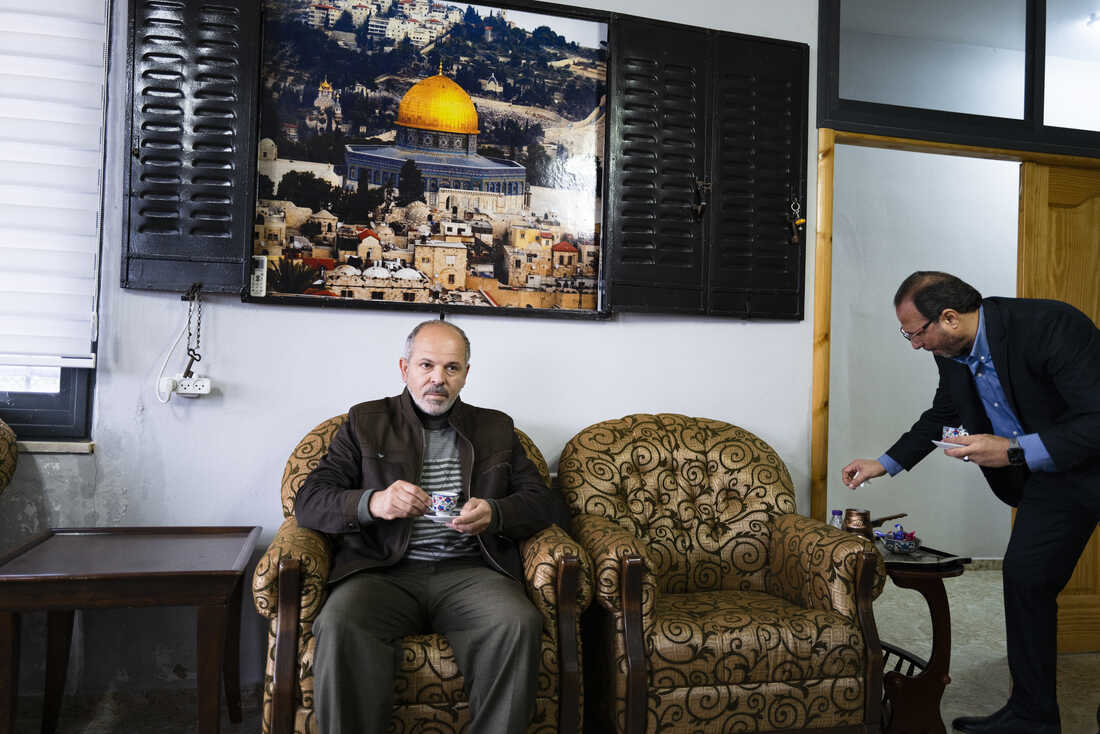
Raed Nimr Hamed, the mayor of Silwad, left, and Musa Hamed drink coffee in Musa Hamed’s multi-story home in Silwad. Out of the roughly 8,000 people who live in Silwad, approximately 1,000 are Palestinian-Americans.
Ayman Oghanna for NPR
hide caption
toggle caption
Ayman Oghanna for NPR
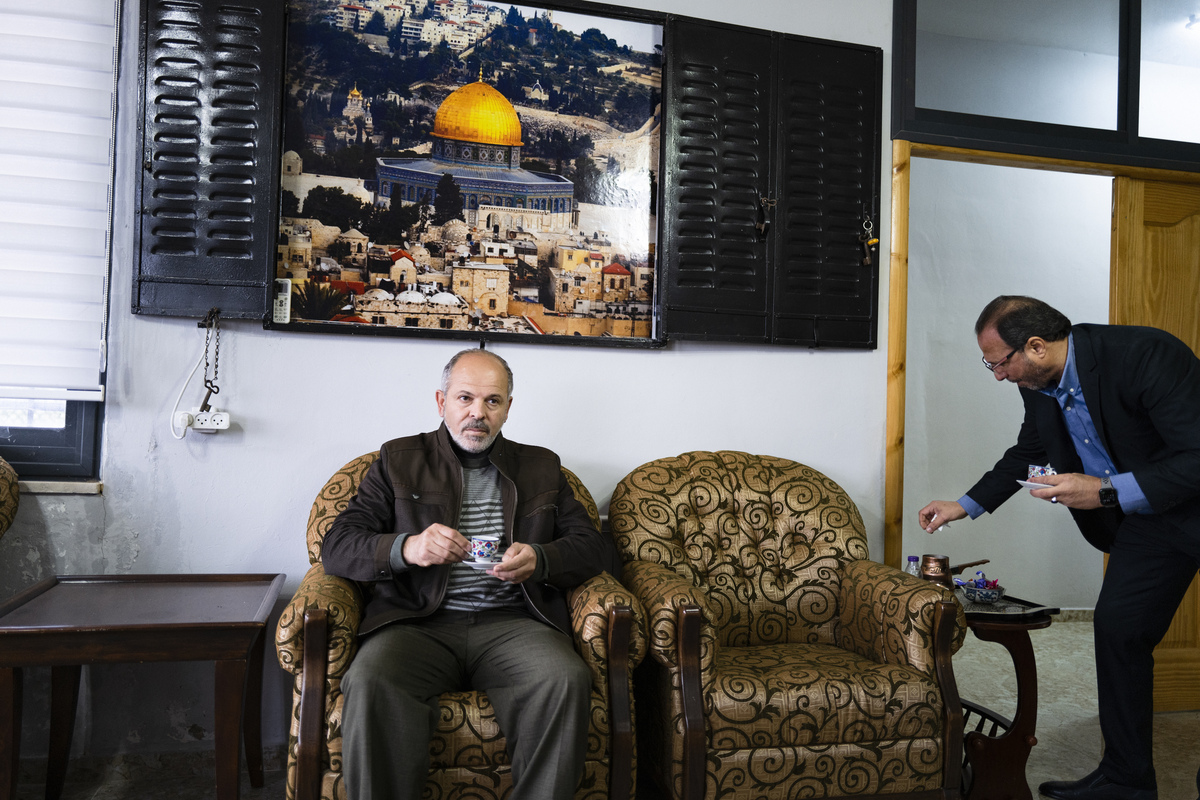
Raed Nimr Hamed, the mayor of Silwad, left, and Musa Hamed drink coffee in Musa Hamed’s multi-story home in Silwad. Out of the roughly 8,000 people who live in Silwad, approximately 1,000 are Palestinian-Americans.
Ayman Oghanna for NPR
And he’s not even close to being done.
“You see down there?” he points from the rooftop of his home toward a pair of towers under construction. “Those two towers are my next project.”
Along with a tour of his home — which is filled with art and furnishings from across the region — he also takes us on a drive through Silwad, pointing to property owned by Palestinian-Americans.
“That belongs to a guy in the states, in the Indiana area. That’s my sister’s house. She’s in Dubai, but she’s a U.S. citizen. This belongs to a family … they’re in Pensacola now,” says Hamed, who also runs the Silwad Student’s Association, a non-profit that supports local students with things like scholarship programs, job placement and vocational workshops.
He takes a turn and points out the home of Khaled Meshal, the former Hamas leader who now lives in Qatar, and a few turns later, Hamed notes, “This masjid, mosque, we call it Masjid Hamas — those who support the cause pray there,” he says. Those who don’t — a sizable majority in the West Bank — pray at other mosques in the town.
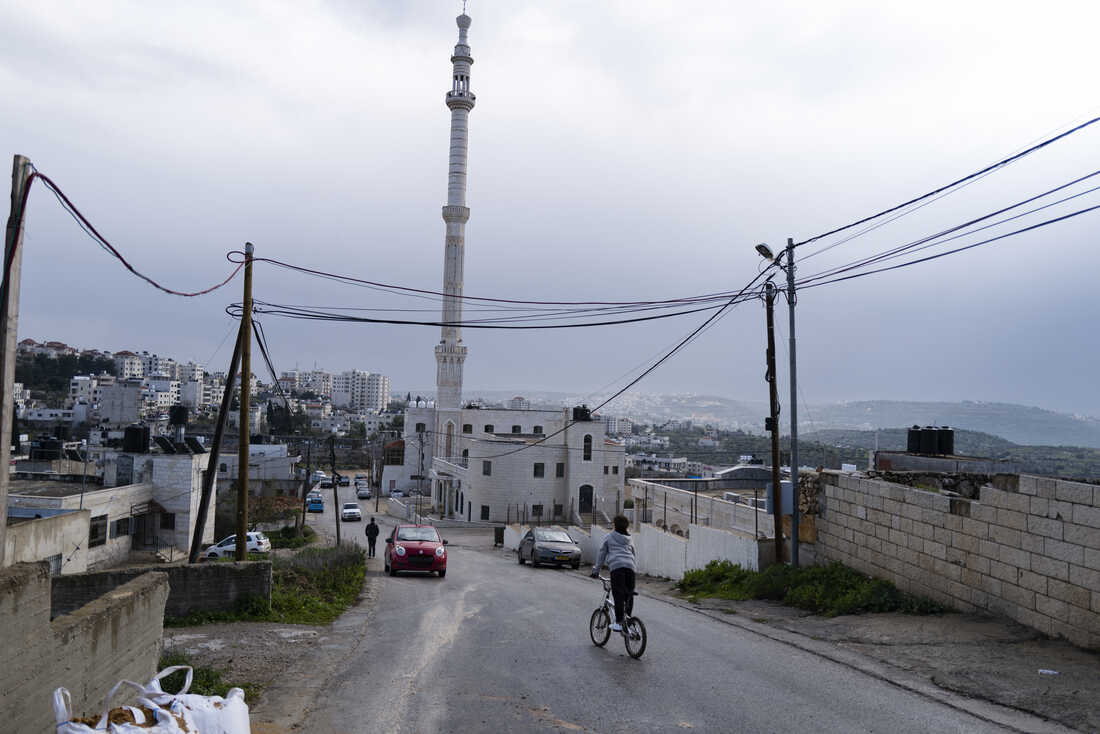
A view of the mosque known as the “Hamas mosque” in Silwad. The town is the birthplace of Khaled Mashal, a founding member of the militant group behind the Oct. 7 attack on Israel. Those who don’t support Hamas — a sizable majority in the West Bank — attend other mosques in Silwad.
Ayman Oghanna for NPR
hide caption
toggle caption
Ayman Oghanna for NPR
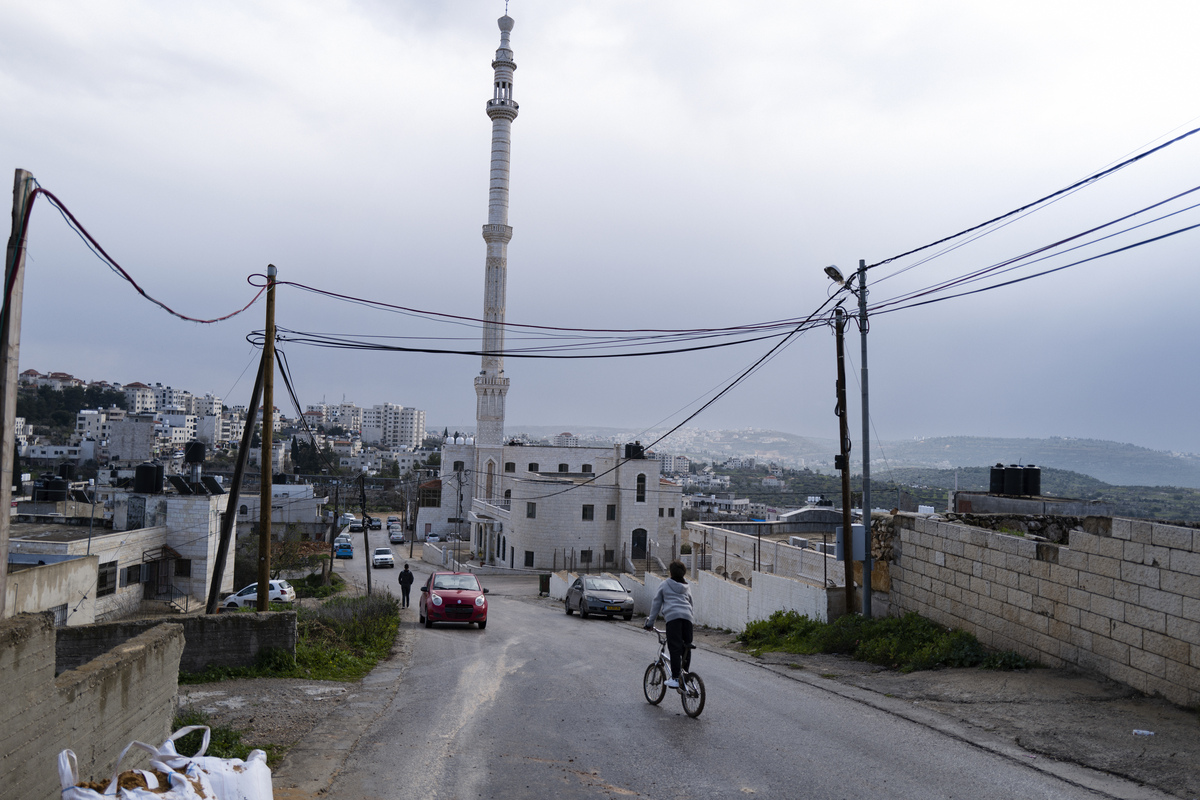
A view of the mosque known as the “Hamas mosque” in Silwad. The town is the birthplace of Khaled Mashal, a founding member of the militant group behind the Oct. 7 attack on Israel. Those who don’t support Hamas — a sizable majority in the West Bank — attend other mosques in Silwad.
Ayman Oghanna for NPR
“I would say 90% of the homes you see right and left are U.S. family homes, this one, that one, this one, that one,” says Hamed, pointing to basically every house on the that street and several others.
Most of the homes are empty, because this is not the time of year that all the Silwadi Americans are here. The locals don’t like all the empty homes, he says.
But the approximately 1,000 Palestinian-Americans who live in Silwad — at least part of the year, according to Mayor Raed Nimr Hamed — need a place to call home.
Plus, a lot of the Palestinian-Americans have family members who live in Silwad full-time and can maintain the homes for them. After all, the tight village of about 8,000 is largely made up of its three founding families or tribes — the Hameds, Hammads and Ayyads, so pretty much everyone is somehow related.
Different but also, the same
Mayor Hamed says that Palestinian-Americans have to deal with many of the same issues as the village’s full-time residents.
“They suffer just like original Silwadis, and deal with the check points,” says Hamed.
“Israel doesn’t treat an American Silwadi different than a non-American Silwadi.”
Indeed, Palestinian-Americans aren’t always spared arrests. Samaher Esmail, a Palestinian-American woman who lives in New Orleans, was arrested at her home in Silwad in February over what Israel’s military described as “incitement on social media.” She was released on bail after more than three weeks in detention, with the judge deciding that Israel’s military court does not have jurisdiction over what a U.S. citizen posts when they are in the U.S., but that U.S. citizens do not have that protection when they post things while in the West Bank.
Palestinians arrested in the West Bank by the Israeli authorities are only tried under Israeli military law.
And less than three miles northeast of Silwad, in the town of Al-Mazra’a Ash-Sharqiya, is where Tawfiq Ajaq, a 17-year-old Palestinian-American from Gretna, Louisiana, was shot dead in January while driving a pickup truck. Israeli police said at the time they were investigating reports that an off-duty Israeli officer and an Israeli civilian shot at a Palestinian throwing rocks. The White House demanding transparency on the matter.
Raids and clashes with Israeli settlers were already on an upswing even before Oct. 7, and have intensified since. That’s when Hamas attacked southern Israel, killing 1,200 people and kidnapping 240, according to Israeli officials. The Israeli military response has killed at least 30,717 Palestinians, according to the Gaza Ministry of Health.
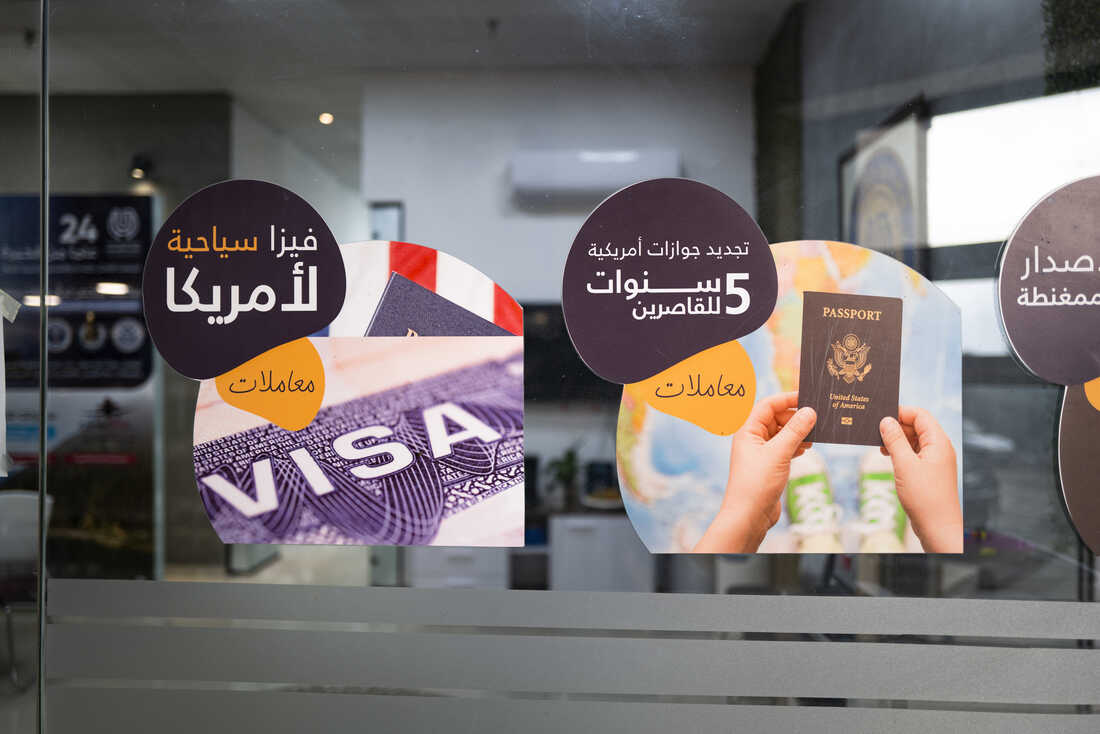
A travel agency in Silwad specializing in visa and travel services to the U.S. Residents throughout the village have close family ties throughout much of the U.S.
Ayman Oghanna for NPR
hide caption
toggle caption
Ayman Oghanna for NPR
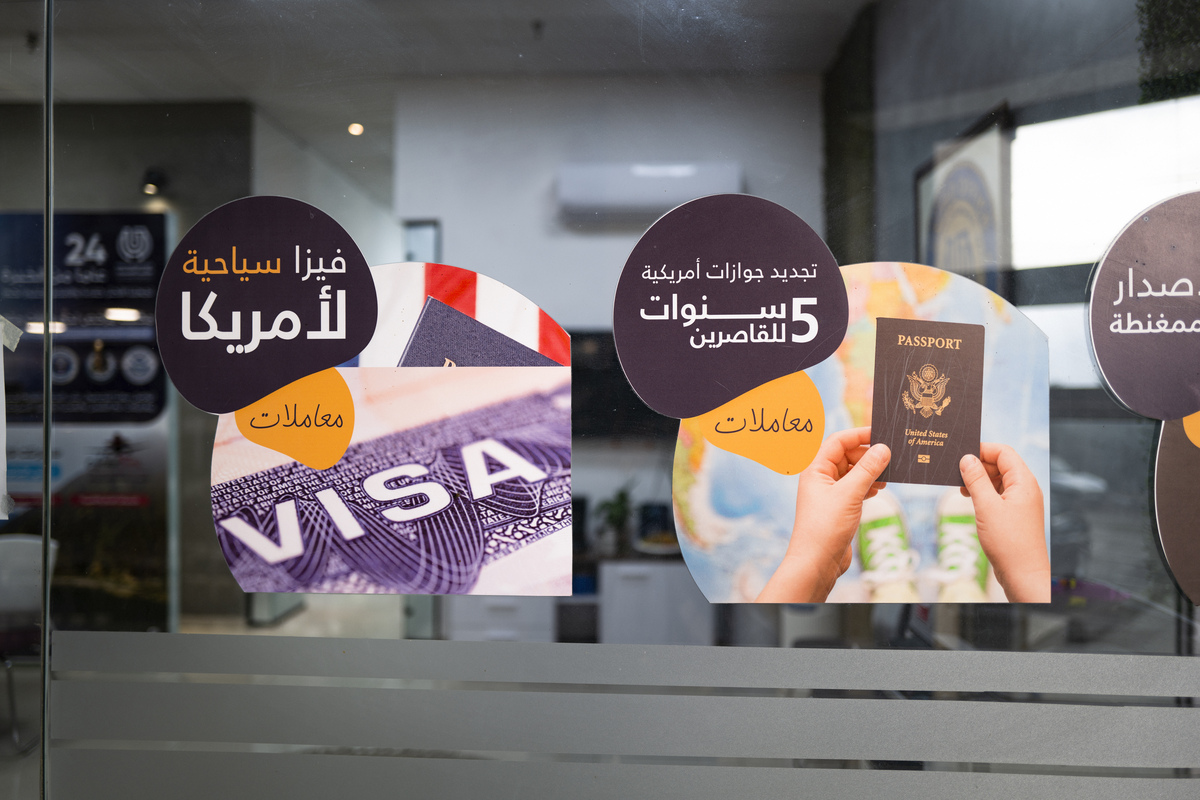
A travel agency in Silwad specializing in visa and travel services to the U.S. Residents throughout the village have close family ties throughout much of the U.S.
Ayman Oghanna for NPR
Still, Hamed says he’s aware that the American passport comes with privileges, and says he’s treated differently by Israeli soldiers when he presents his to them.
“But it depends on the personality of the individual,” he says.
His daughter-in-law, Sahar Ali, who was born in New Jersey and raised in Florida, doesn’t feel very safe.
“I thought I’d feel safer and more secure … I thought, you know, what if I get stopped at a checkpoint? I’m American, that doesn’t matter anymore,” says Ali.
Ali wanted to bring her three children here to study Arabic and experience their cultural roots and traditions. Her family is from another nearby village, Deir Dibwan, and so she hoped her children would have the full familial experience when they came to Silwad at the end of August for the start of the school year.
Then came Oct. 7.
“It was terrifying. I had lots of freakout moments where I was like, ‘this is not normal,’ and then I would have friends, neighbors, people I deal with say, ‘This is our life,'” says Ali.
The family has chosen to stay, but Ali says it wasn’t an easy decision.
“You know, we’re not going to flee. This is our homeland, we belong here, just as much as anyone else does,” she says.
Identity politics
There’s an expectation here that Palestinian Americans will try to change U.S. policy, specifically, on the extent of its support for Israel, which has come into sharper focus since the start of the war in Gaza.
“There are ongoing discussions, all the time, between Silwadis and American Silwadis about American policies, what the U.S. is doing in Palestine, its support of Israel — this is an ongoing conversation,” says Mayor Hamed.
And there’s some confidence that the voices of Palestinians in the U.S. are having an effect.
“In America, we have our people. They are the ones that are moving the demonstrations. They’re the ones that are protesting, shaking the American streets, people from these villages,” says Abdurahman as he straightened up behind the counter at Abu Shukri’s American Coffee.
Hamed says he’s “very, very strongly disappointed” in the Biden administration.
“If you go back to the election in 2020, Biden got into office because of us. We put Biden in office and everyone knows this,” says Hamed.
While Palestinian-Americans aren’t a large population in the U.S. — roughly 172,000 according to the 2022 American Community Survey — they are connected to other Arab-American and Muslim communities. And Hamed says they intend to leverage those connections for the 2024 elections.
And in a close election it’s not necessarily the big numbers that will make the difference. In Michigan, for example, Arab Americans proved decisive in lifting Joe Biden to victory over Donald Trump in 2020 by 154,000 votes. But today, many of the state’s 200,000 registered Muslims are threatening to withhold support in this year’s election over their anger with U.S. support for Israel.
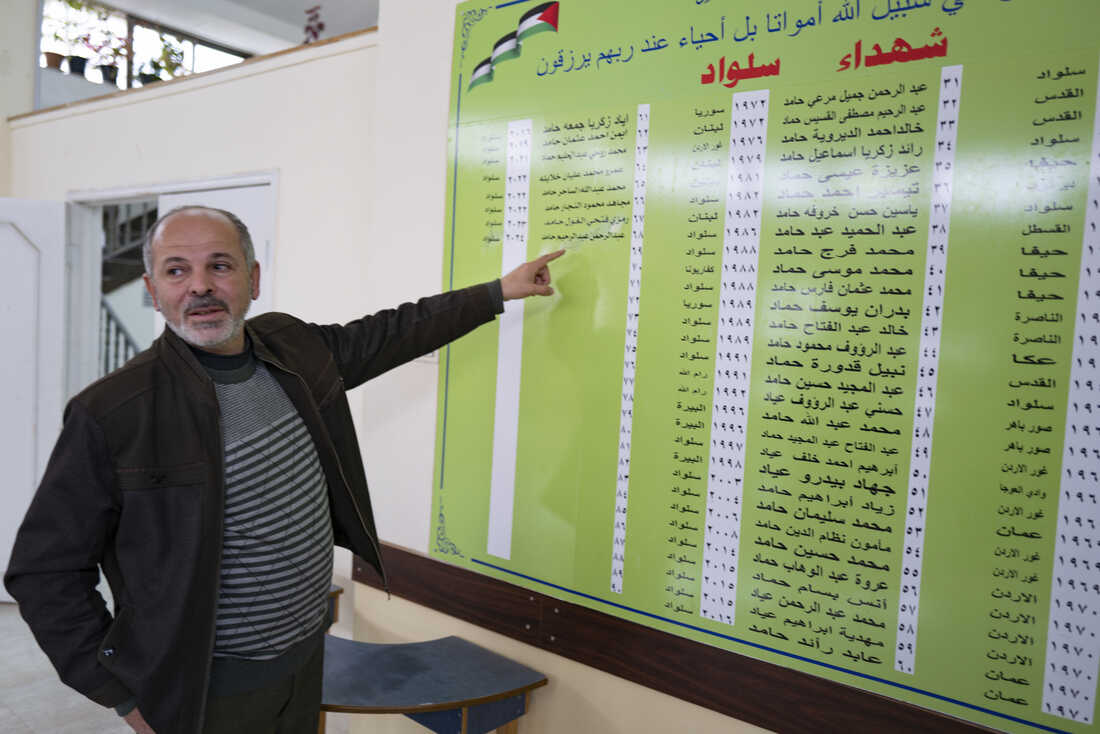
Raed Nimr Hamed, the mayor of Silwad, points out the town’s list of those killed while fighting Israel’s occupation of the West Bank.
Ayman Oghanna for NPR
hide caption
toggle caption
Ayman Oghanna for NPR
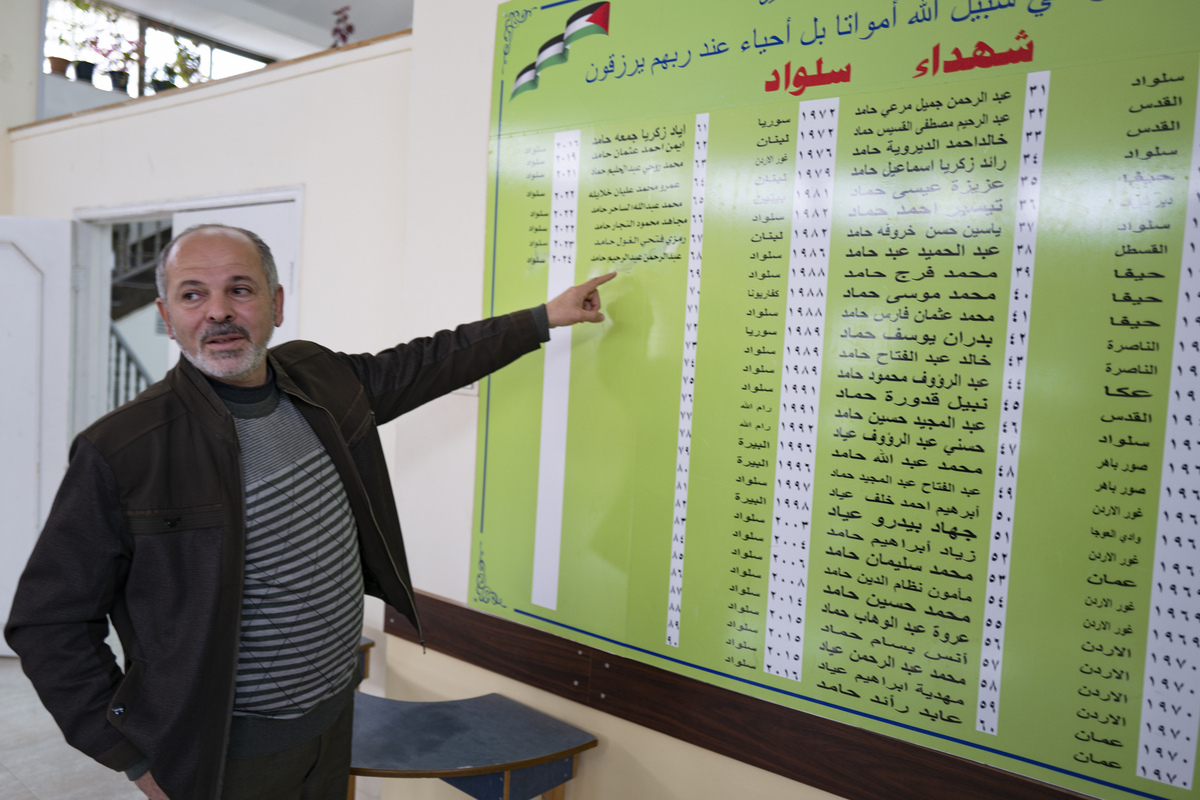
Raed Nimr Hamed, the mayor of Silwad, points out the town’s list of those killed while fighting Israel’s occupation of the West Bank.
Ayman Oghanna for NPR
Hamed rattles off organizations and communities he’s part of in several states, like Florida, Georgia, Louisiana, Illinois, Indiana and Ohio.
“We are not going to vote Democrat anymore, even though we have been supporting Democrats. And we’re probably not going to vote Republican either,” says Hamed.
“And although it means our voice will be wasted, we are going to go independent … We’re sick and tired of Republican-Democrat, Democrat-Republican,” he says, adding that he considers himself a “proud American.”
His daughter-in-law, Sahar Ali, is equally disappointed.
“We work so hard, we’re proud Americans. Our tax dollars should be bettering our own country, but instead, they hurt our own people,” says Ali.
“That’s the hardest part of it.”





